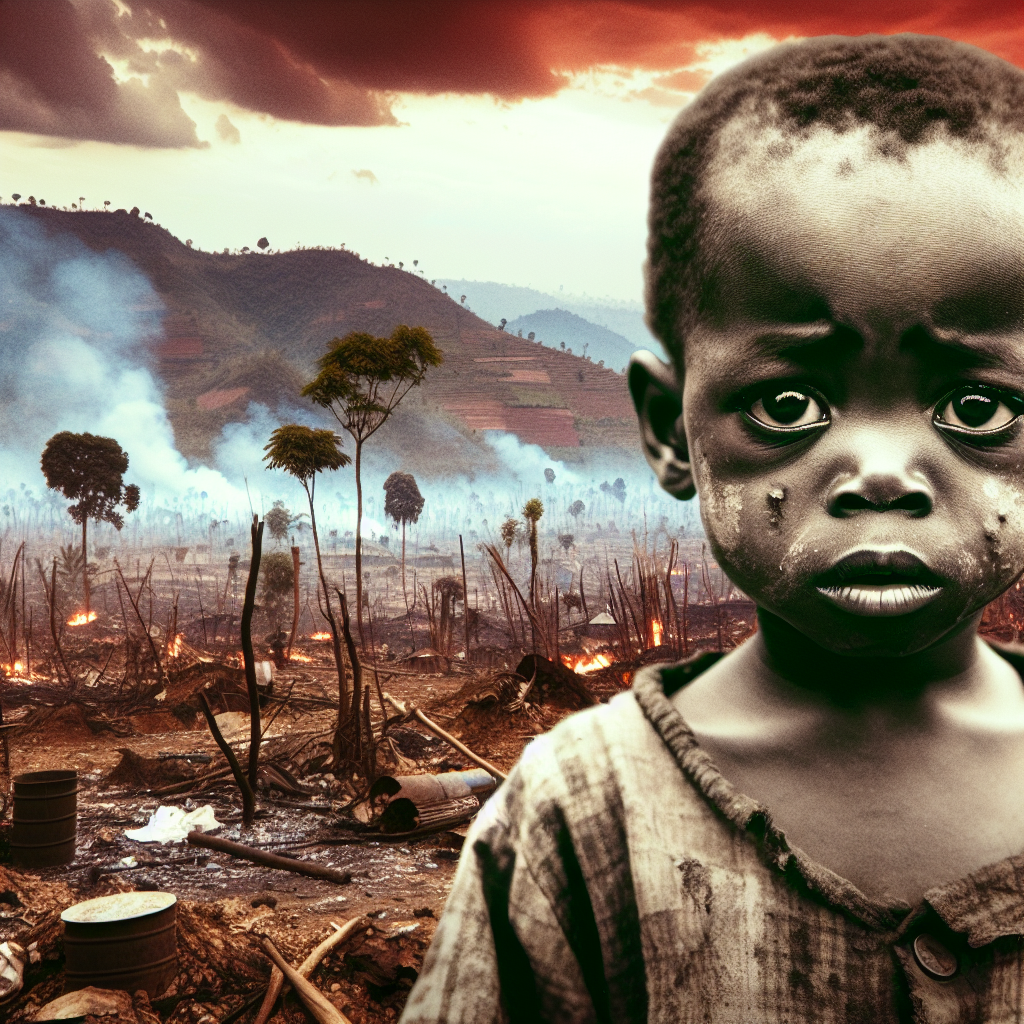The emergence of a new Mpox virus variant in remote eastern Congo has raised significant concerns among health officials and local communities. This alarming development, reported by the Wall Street Journal, highlights a troubling shift in the virus’s behavior, particularly its impact on children. Unlike previous strains that primarily affected adult men, this new variant is rapidly spreading among younger populations, often with fatal consequences.
The New Mpox Variant: A Growing Threat to Children
The discovery of this new Mpox variant marks a critical turning point in our understanding of the virus’s evolution and transmission patterns. Experts are particularly alarmed by the virus’s increased affinity for infecting children, a demographic that was previously less affected by earlier strains. This shift not only challenges existing prevention and treatment strategies but also raises urgent questions about the virus’s mutation capabilities and potential for further spread.
Key Characteristics of the New Variant
1. Increased transmission among children: Unlike its predecessors, this variant shows a marked preference for younger hosts.
2. Higher fatality rates in pediatric cases: Reports indicate a concerning trend of severe outcomes in infected children.
3. Rapid spread in remote areas: The variant is proliferating quickly in isolated regions of eastern Congo.
4. Distinct from previous strains: Its behavior significantly differs from that of Mpox variants observed in other parts of the world.
The Impact of Conflict and Displacement
The situation in eastern Congo is further exacerbated by ongoing regional conflicts and widespread displacement. These factors create a perfect storm for virus transmission and complicate efforts to contain the outbreak. The unstable environment poses several challenges:
1. Limited access to healthcare: Many affected areas lack adequate medical facilities and resources.
2. Disrupted vaccination campaigns: Conflict zones make it difficult to implement widespread immunization efforts.
3. Increased vulnerability of displaced populations: Crowded living conditions and poor sanitation in refugee camps can accelerate virus spread.
4. Challenges in contact tracing: Population movement makes it harder to track and isolate infected individuals.
Public Health Response and Challenges
The emergence of this new variant has prompted a swift response from local and international health organizations. However, the unique circumstances in eastern Congo present significant obstacles to effective intervention.
Current Response Efforts
1. Enhanced surveillance: Health authorities are ramping up efforts to detect and monitor new cases, particularly among children.
2. Adapted treatment protocols: Medical teams are adjusting their approaches to better address the needs of pediatric patients.
3. Community education: Initiatives are underway to inform local populations about the new risks and prevention measures.
4. International collaboration: Global health organizations are providing support and resources to local efforts.
Ongoing Challenges
1. Limited resources: The remote location of many outbreaks strains already scarce medical supplies and personnel.
2. Security concerns: Ongoing conflicts in the region hamper the safe deployment of health workers and aid.
3. Vaccine efficacy questions: It’s unclear how effective existing Mpox vaccines are against this new variant.
4. Cultural barriers: Local beliefs and practices may impact the acceptance of medical interventions.
The Global Implications
While currently localized to eastern Congo, the emergence of this new Mpox variant has broader implications for global health security. The virus’s ability to mutate and target new demographics underscores the need for continued vigilance and research.
Key considerations include:
1. The potential for international spread, especially given global travel patterns.
2. The need for updated vaccine development and distribution strategies.
3. The importance of strengthening global health surveillance systems.
4. The critical role of international cooperation in addressing emerging health threats.
Frequently Asked Questions (FAQ)
Q: What is Mpox?
A: Mpox, formerly known as monkeypox, is a viral infection that causes flu-like symptoms and a characteristic rash. It’s related to smallpox but typically less severe.
Q: How does this new variant differ from previous Mpox strains?
A: The new variant primarily affects children, unlike earlier strains that mostly impacted adult men. It also appears to have a higher fatality rate among pediatric cases.
Q: Is this new variant more contagious?
A: While exact transmission rates are still being studied, the rapid spread among children in eastern Congo suggests increased contagiousness, particularly in this demographic.
Q: Can existing Mpox vaccines protect against this new variant?
A: The effectiveness of current vaccines against this specific variant is not yet fully known. Research is ongoing to determine their efficacy and potential need for modifications.
Q: What precautions should be taken to prevent infection?
A: General preventive measures include good hygiene practices, avoiding close contact with infected individuals or animals, and seeking prompt medical attention if symptoms develop.
Conclusion
The emergence of a new Mpox variant in eastern Congo, particularly affecting children, represents a significant shift in our understanding of the virus and poses new challenges for global health. The combination of this evolving pathogen with the complex socio-political landscape of the region creates a uniquely difficult situation for containment and treatment efforts.
As the international community rallies to address this crisis, it serves as a stark reminder of the ever-present threat of emerging infectious diseases and the critical importance of robust, adaptable global health systems. The situation in Congo underscores the need for continued research, vigilant monitoring, and coordinated international responses to protect vulnerable populations and prevent the wider spread of such dangerous variants.
The ongoing developments in eastern Congo will likely shape future approaches to Mpox prevention and treatment worldwide, highlighting the interconnected nature of global health challenges in our modern world.
